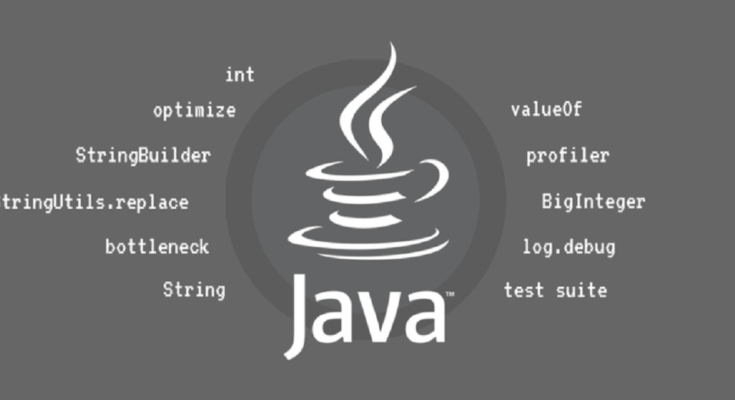In the digital realm, the efficiency of code is a pivotal factor that can significantly impact the performance and scalability of software applications. Particularly in Java, a widely adopted programming language, efficient code can be the linchpin in ensuring a seamless user experience and operational excellence. This article delves into various strategies that developers can employ to bolster the efficiency of their Java code.
Minimising Object Creation
Reducing the frequency of object creation is crucial for optimising performance. Object creation in Java can be a costly operation because memory allocation and initialization are required. Object creation reduction can considerably improve the performance of Java code. One strategy is to repurpose extant objects rather than create new ones. This can be accomplished by implementing object pooling, where a pool of objects is created and reused as required.
The use of immutable objects, which cannot be altered once created, is another option. Multiple threads can share immutable objects without the need for synchronisation, thereby reducing overhead. In addition, the use of static factories and flyweight patterns can aid in minimising the formation of new instances of objects by repurposing existing instances. Java code can increase performance and reduce memory consumption by minimising object construction.
Avoiding String Concatenation in Loops
By averting string concatenation in loops, programme performance can be enhanced. String concatenation necessitates the construction of a new string each time two strings are joined, which can be a time-consuming operation, particularly when performed within a cycle. This may result in superfluous memory allocation and garbage collection, degrading the overall performance of the code.
Instead of explicitly concatenating strings in a loop, it is recommended to use a StringBuilder or StringBuffer class, which offers more efficient methods for string addition. These classes permit strings to be modified, thereby reducing the need for constant object creation. By utilising these classes, the programme can avoid needless memory overhead and enhance its efficacy.
Employing Proper Exception Handling
Maintaining the stability and dependability of a programme requires appropriate exception management. When an unanticipated event or error interrupts the normal course of code execution, an exception occurs. By employing proper exception-handling techniques, developers can guarantee that these exceptions are managed in a controlled and graceful manner, thereby preventing the program from crashing or generating incorrect results.
An essential aspect of exception handling is catching and managing specific exceptions as opposed to a catch-all block. This enables more targeted and specific error handling, allowing developers to take action based on the type of exception encountered. Additionally, it is crucial to provide informative error messages to assist in debugging and troubleshooting.
Implementing Multithreading for Parallel Execution
Multithreading enables the parallel execution of duties within a programme, which improves performance and maximises resource utilisation. Multithreading is the process of partitioning a program into multiple threads that can run concurrently. This enables concurrent implementation of duties, thereby reducing the overall execution time. By utilising multiple threads, a program can take advantage of multicore processors designed for parallel execution.
Multithreading can significantly improve the performance of Java code, particularly in situations involving computationally intensive tasks or tasks that require waiting for external resources. It is essential to observe, however, that multithreading introduces obstacles such as race conditions and synchronisation issues. Implementing appropriate synchronisation mechanisms, such as locks and semaphores, will assure thread safety and prevent data corruption.
Optimizing Database Queries
To enhance the retrieval of data from a database, optimising database queries involves analysing and refining the execution plans and indexes. By meticulously scrutinising the query execution plans, developers can identify improvement opportunities and make the necessary modifications. This could involve rearranging the order of operations, adding or modifying indexes, or completely revising the query.
Indexes play a vital role in query optimisation, as they facilitate speedier data retrieval by organising the data in a particular manner. Additionally, developers can improve the efficacy of database queries by employing techniques such as query rewriting, cache, and materialised views. By optimising database queries, developers can drastically reduce query execution time and enhance system performance.
Profiling and Benchmarking for Performance Analysis
Profiling and benchmarks are indispensable methods for analysing the efficacy of Java code. After database query optimisation, profiling and benchmarking provide additional insight into code performance. Profiling involves measuring method execution times and identifying performance obstacles. It assists developers in identifying sections of code that occupy an inordinate amount of resources, allowing them to concentrate their optimisation efforts effectively.
In contrast, benchmarking compares the efficacy of various implementations or code versions to determine their relative efficiency. Developers can make informed decisions regarding code optimisation by executing the code under controlled conditions and measuring metrics such as execution time and memory usage. Profiling and benchmarking provide developers with objective information that enables them to make informed decisions and enhance the overall efficacy of Java code.
Testing for Efficiency
Testing is crucial for enhancing Java code efficiency, encompassing performance testing, profiling, unit, automated regression, and static code analysis. Performance testing with tools can help evaluates scalability and speed, while profiling tools help test bottlenecks. Additionally, code reviews foster collective scrutiny for efficiency, unveiling alternative solutions.
Embedding these Java code testing strategies within the development lifecycle, coupled with continuous performance monitoring, enables a methodical approach towards optimizing code efficiency, thereby fostering the delivery of high-performance Java applications.
Conclusion
Increasing the efficacy of Java code can be accomplished through a variety of strategies. Effective strategies include utilising data structures and algorithms, minimising object creation, and avoiding string concatenation in loops. Also recommended is the use of StringBuilder for string manipulation, adequate exception management, and multithreading for parallel execution. Additional strategies that can considerably boost the efficacy and effectiveness of Java code include optimising database queries, profiling, and benchmarking for performance analysis.




